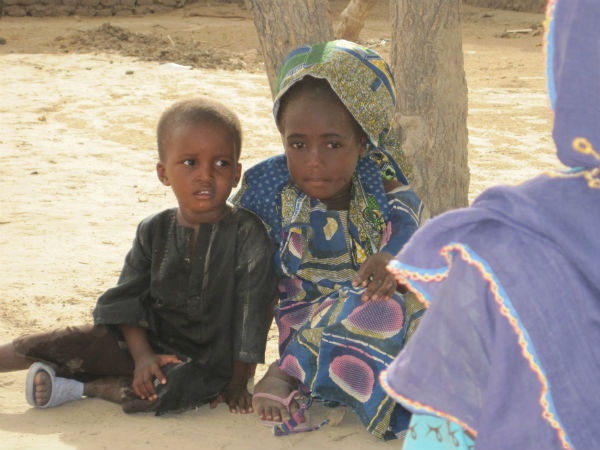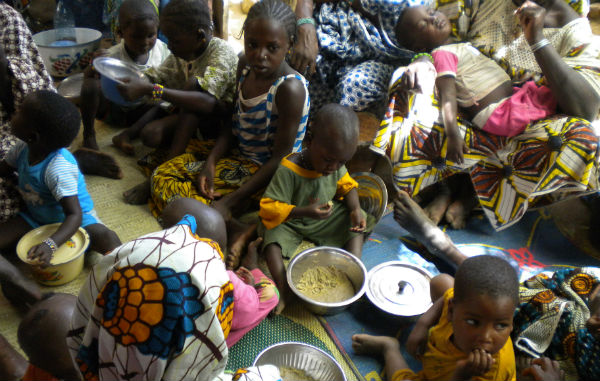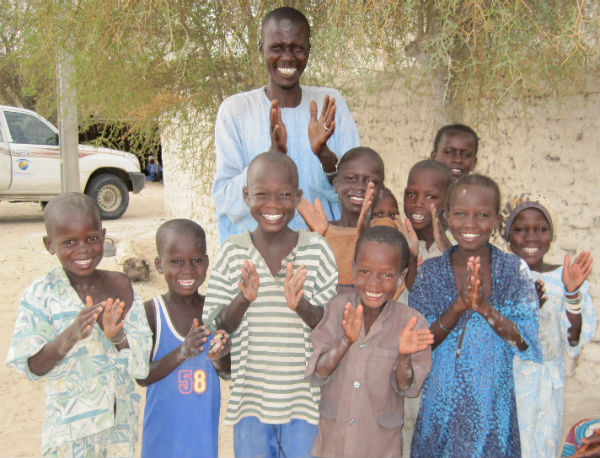
This blog is part of a series organized by The Huffington Post and the NGO alliance InterAction to call attention to the crisis in the Sahel, a region in sub-Saharan Africa where more than 18 million people face starvation and 1.1 million children under the age of 5 are at risk of dying from acute malnutrition. Click here to read more of HuffPost Impact's coverage of the Sahel and here to find out what InterAction members and others are doing in the Sahel.
Although my email is flooded with messages detailing the political, economic and climactic forces precipitating a hunger crisis in the Sahel, the story is strikingly absent from the news reaching most Americans. Because my work in the region has helped me see these vulnerable families as if they were my own, I am anguished by the situation.
Beginning last October UN agencies began to raise the alarm about the poor cereal harvest that season; this in a context where even a normal harvest is not enough to feed everyone well and where many in recent years have been far below normal. Then with the revolution in Libya, heavy weaponry spilled over the borders and into the hands of rebels who had long wished to fight for independence. In Mali they launched a bloody challenge the army was not prepared to face.
Next, out of nowhere, an army captain toppled the democratic government one month before elections were to be held (and in which the president had pledged not to run). Security in the north has since disintegrated, and over 300,000 citizens have fled the weapons as well as marauders, kidnappers and rapists. They are being hosted by communities elsewhere in Mali, as well as in Burkina Faso, Niger and Mauritania, which are doing their best to be hospitable but were already on the edge of survival and have now been pushed into crisis.
Just last year I had visited one of HKI's projects in what is now part of the war zone. Our program is funded by USAID and aims to help health centers and communities rehabilitate children suffering from acute malnutrition ("starvation" in common parlance) and to work to improve infant and young child feeding practices that could help prevent malnutrition in the first place.

Children in a village assisted by Helen Keller International's project for the prevention and treatment of acute malnutrition.
In truth, even though food shortages are chronic, lack of understanding of how to nourish children in the 1,000 day critical window between conception and the second birthday also contributes to malnutrition. For treatment we use both the more medical approach known as community-based management of acute malnutrition (CMAM) and the "positive deviance" approach, which identifies solutions discovered by community mothers themselves (such as adding wild foods rich in vitamin A and protein to the child's porridge) and sharing these with other mothers during communal cooking demonstrations. I had been transfixed at one of these "hearths" by a tiny child who ate insatiably from a bowl of millet enriched with peanut butter and soy. Importantly, each hearth begins with hand washing to ensure that in feeding themselves the children don't get sick.

Small boy enjoying enriched porridge during a "Hearth" health education session.
Our courageous staff has returned to the area after having been evacuated from the fighting, and we are working to extend the program to reach some of the communities swelled with displaced persons. Still, the needs are enormous across the Sahel region for food crop seeds for the next cultivation season, for emergency foods tents and other supplies for refugee camps, and for health services to respond to anticipated outbreaks of cholera, meningitis and more routine killers such as malaria and diarrhea.
My heart is with the staff who must work in frightening and arduous conditions (the temperature rises to over 105these days), but even more for the families who have lost what little they had and those who are sharing their last rations with strangers, because that's what they do. Still, I also remember how easily the people manage to find joy, even in the harshest of circumstances. There is much we can learn from those with so little.

Children expressing their appreciation for HKI support.